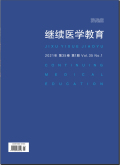继续医学教育2024,Vol.38Issue(7):5-8,4.DOI:10.3969/j.issn.1004-6763.2024.07.002
人体寄生虫学实验教学优化改革措施的探索
Research in Experimental Teaching Reform of Human Parasitology
摘要
Abstract
Parasitic diseases remain a significant public health issue.Experimental teaching,as a crucial component of human parasitology education,has traditionally been teacher-led with students following.Despite catering to various majors such as clinical medicine,preventive medicine,and laboratory medicine,there is a lack of tailored teaching content based on the specific characteristics of each major.While online teaching resources are continuously being developed and updated,their utilization in experimental teaching remains low,failing to fulfill their potential in teaching practice.This paper analyzes the current status and challenges of experimental teaching in human parasitology and proposes solutions to address these issues.Through proactive exploration in experimental teaching and within the framework of"One Health",tailored blended teaching approaches have been designed for different majors,taking into account the prevalence of parasitic diseases in China.These initiatives aim to enhance teaching effectiveness and offer valuable insights for the reform of experimental teaching in human parasitology.关键词
人体寄生虫学/寄生虫病/实验教学/教学改革/全健康/混合式教学Key words
human parasitology/parasitic disease/experimental teaching/teaching reform/One Health/blended teaching分类
社会科学引用本文复制引用
潘智华,刘亚萍..人体寄生虫学实验教学优化改革措施的探索[J].继续医学教育,2024,38(7):5-8,4.基金项目
徐州医科大学2019年校级教育教改研究立项课题(Xjy201908) (Xjy201908)

